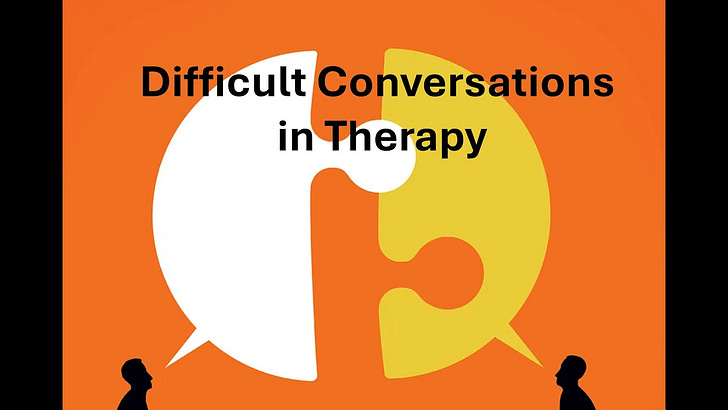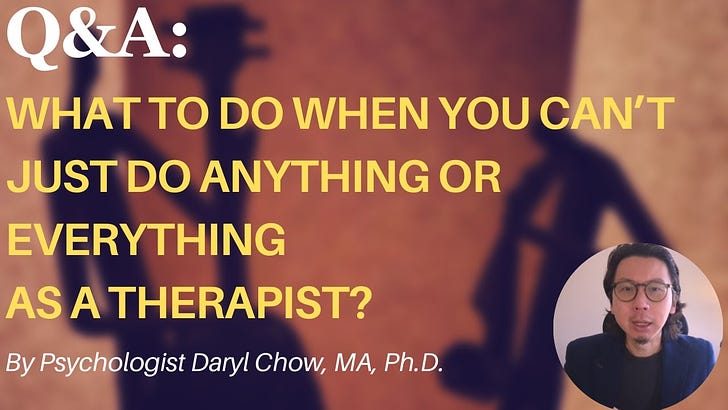In Therapy Tip of the Week #6, we continue on the topic of improving working alliance. Here's my recommendation, when seeking for feedback, avoid talking about... you!
If you have missed the previous videos on how to improve working alliance, here are links:
⏳ Time Stamps:
00:00: Introduction 01:00: Using Depersonalised language 01:42: What Feedback is Not 02:02: Feedback to Feed-Forward 04:14: Summary
Note: Any personally identifiable information in clinical examples used are changed, in order to protect their confidentiality and privacy. 📕 Related Link:
📜 Becoming a Deep Learner: If you value lifelong learning and want to leverage this into your clinical effectiveness as a mental health professional, check out The Deep Learner course. https://darylchowcourses.teachable.com/p/deeplearner/ --- 🎁 Finally, would like to receive 5 wicked recommendations each Friday? Subscribe to our Frontiers Friday newsletter: 🎯https://darylchow.substack.com Here's a sample of past FF newsletters: 1. On Highly Sensitive Persons: https://darylchow.substack.com/p/4760832_frontiers-friday-101-sensitivity-part-i- 2. On Emotions: https://darylchow.substack.com/p/4760804_frontiers-friday-95-emotions-part-i- 3. On Deliberate Practice: https://darylchow.substack.com/p/4760599_frontiers-friday-51-deliberate-practice-part-v-













Share this post